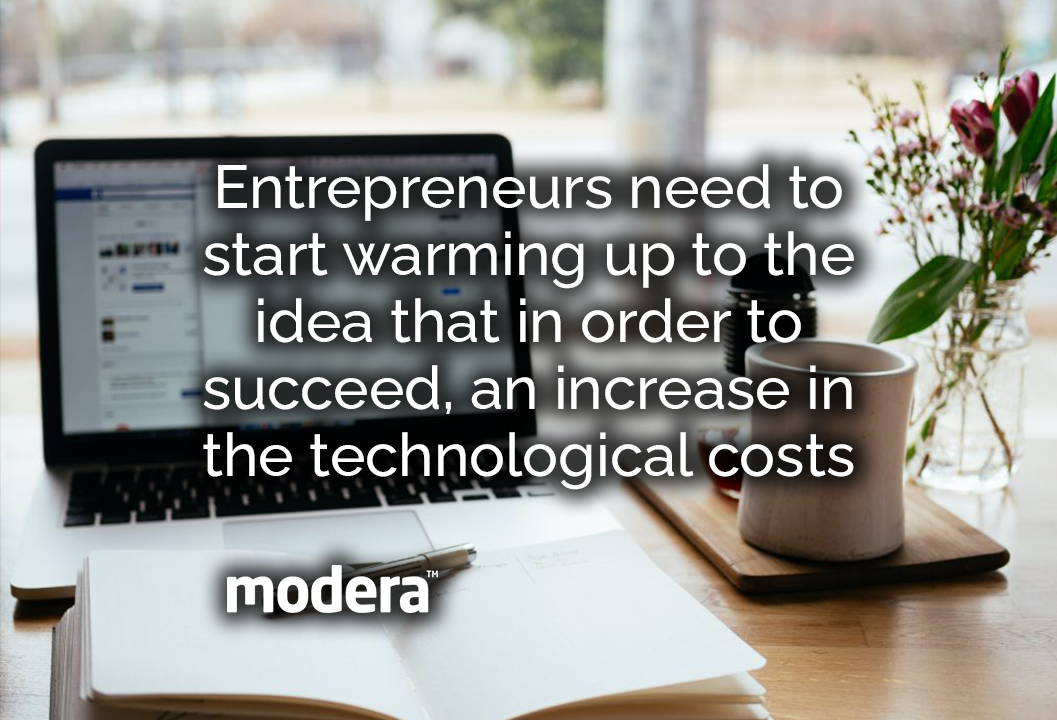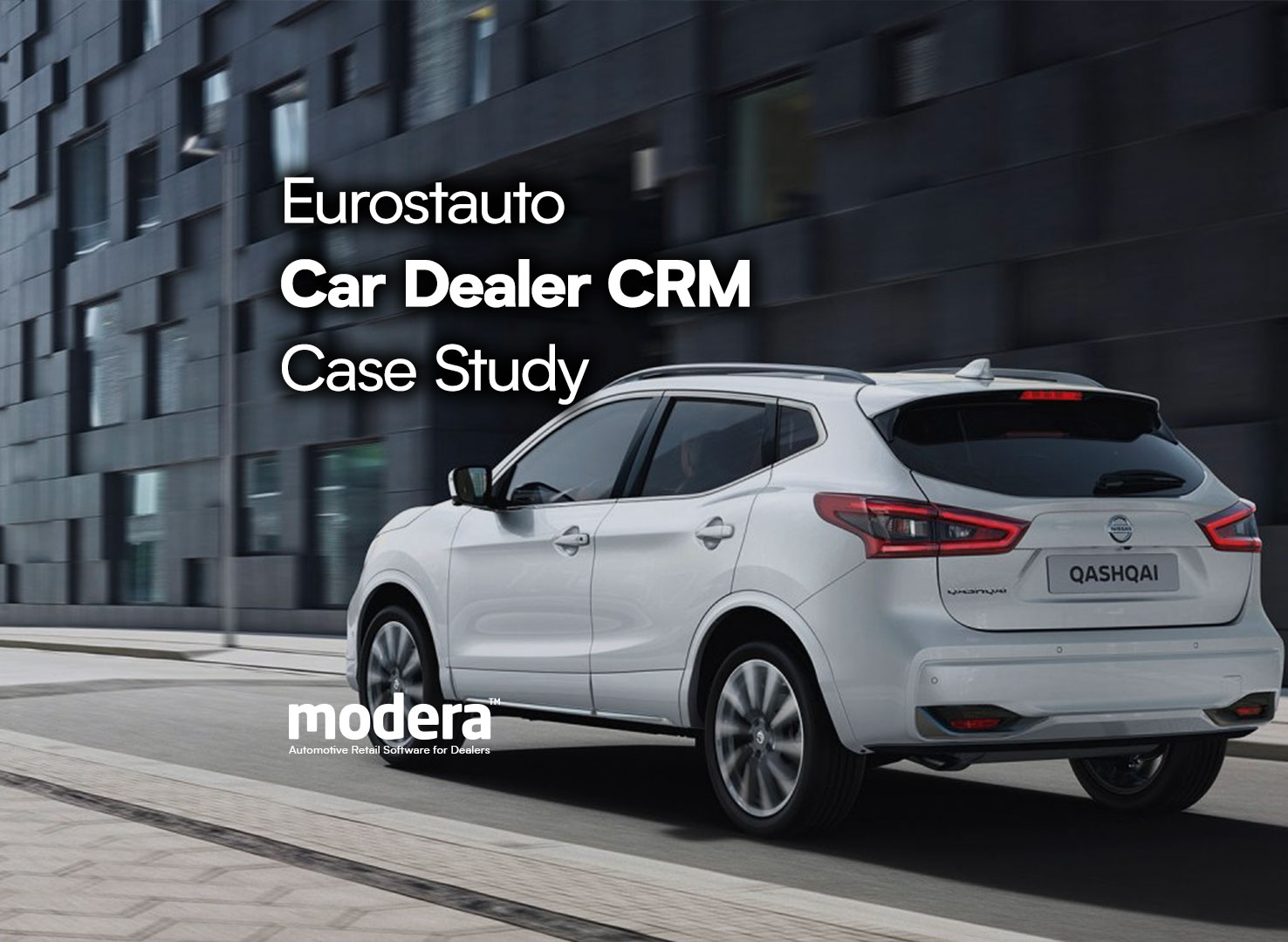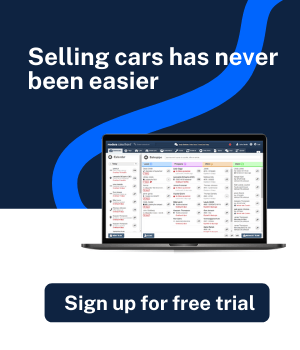According to Raido Toonekurg, a board member of AS Modera, by the year 2030 the monetary means in the car business have moved from concrete and glass into wires and clouds.
Most wholesalers and retailers have probably understood by now that their businesses are bound to change a lot within the coming years. The fact that on average around 40% of customers use self-checkout in the leading retail stores and in some stores the amount even reaches 70%, is a clear indication of the change in consumer behavior compared to five years ago.
There’s been a significant increase in the role e-commerce plays in retail, although the share in absolute numbers still remains small.

33 billion for retraining
A recent study by the IBM Institute of Business Value called ”Automotive 2030”, regarding the leaders of the automotive industry, came to the conclusion that the 100-year-old business model ”produce, sell and service cars” is coming to an end. The rapid change in customer behavior and pressure from stakeholders and regulations brings on change faster than expected.
What should companies in the car business do to survive and succeed under that kind of pressure? How can they grow and develop to stay active and innovative, while keeping up with tech companies, whose businesses are all about data and technology?
Out of more than 1500 leaders from the car business, who took part in the survey, about half felt that in order to survive and stay in the market, they’d need to go through a digital rebirth. 33 billion dollars has become the estimated cost to digitally retrain all the people in the car business within the next 10 years.
Obviously 33 billion dollars is a huge number and somewhat difficult to grasp. Let’s try and bring this idea closer to home and see what this could mean for the local entrepreneurs.
First and foremost, within the next five years technological costs will increase about 5-50 times for companies in the car business. It is difficult to give an exact estimate, but entrepreneurs have to start to consider increasing their technological investments as well as an increase in the cost of technological services.
Technological investments are no longer a specific amount added to the yearly budget once and calling it a day. They have become a vital cost that needs to be reviewed on an ongoing basis (e.g. quarterly) and increased quickly when needed. Otherwise you’ll risk staying behind and biting the dust of the ones who acted fast.

Change in the way of thinking
The most hard part about the change is probably coming to terms with the fact that technological investments are no longer just another cost in the yearly budget, but a vital part of the business. This reminds me of two of my friends. One is a manager of development for a big retail chain and used to setting budgets and desired outcomes for different projects. The other friend is an owner of an IT-company, whose clientele comprises international companies, who order services on an ongoing basis and pay for the hours of work that go into providing the service.
I personally prefer the first approach, but have understood by now that the second approach is more effective in the digital world we live in.
Entrepreneurs need to start warming up to the idea that in order to succeed, an increase in the technological costs is inevitable. However, money alone is not going to cut it. You need to be smart and implement your technological investments wisely, to lead your core business in the right direction.
The results of the study show that being technologically more advanced than the competitors, already impacts the success of companies.
A digital experience is added
At the same time, the existing infrastructure of car sales is not going anywhere. We’ll still have places where the customer can come and see the car, take a test drive and get service. Due to the change in customer preferences, car dealers now have to offer great service not only in the showroom or service points, but also on all virtual platforms.
This includes your website, a quality car configurator and all social media platforms your customers like to use. In case the customer prefers communicating via Messenger, a good customer support specialist will make that happen.
The transition from the virtual environment to the physical has to be made unnoticeable. To be more specific – once a customer has clicked on an attractive new car ad on Facebook, configured a desired car and booked a time for a test drive, the salesperson should already be able to handle the configured car by the time the customer gets to the showroom, instead of offering a random vehicle from the stock.

Think long term, act now, even with small steps.
As a shareholder of Tallinna Kaubamaja, I was impressed by their ability to react fast during the first wave of the Corona pandemic during spring. They increased the home delivery area of e-Selver exponentially, thus covering a significant amount of all the consumers in Estonia.
This is a great example of how a big organization can be fast and flexible and how small, but smart steps will bring success (the fastest growth of market share).
Three recommendations for the car industry
- Glue customers to you
Create virtual client profiles that connect the data of the customer and the car, thus making your customers’ lives easy. Since the whole communication is simple, your clients will be glued to you.
Make use of cognitive abilities by combining the information based on the use of the car, customer’s personal preferences and parameters derived from the environment to try to foresee your customer’s potential wishes.
- Be innovative, don’t isolate – create a platform for successful and purposeful cooperation
Define your core business, but be open to different cooperations both strategically and technologically. Don’t be afraid of sharing data and information to help boost your business.
- Go with the flow and change fast
Implement design thinking, stay open to involving different people in the development process; include customers in developing and testing new ideas to find the best solutions as fast as possible.

Products
Implemented solutions

Car Dealer CRM Case Study for Eurostauto
Find out how being a pilot dealer for our car dealer CRM software helped Eurostauto land on a smooth and solid sales process. Quick facts Driven by results and simplicity with Modera Salesfront. Who? OÜ Eurostauto What? Official representative of Nissan Nordic Europe and maintenance provider of Mazda Where? Estonia Range? Biggest Nissan dealer in … Continue reading
Read more on the Äripäev webpage

